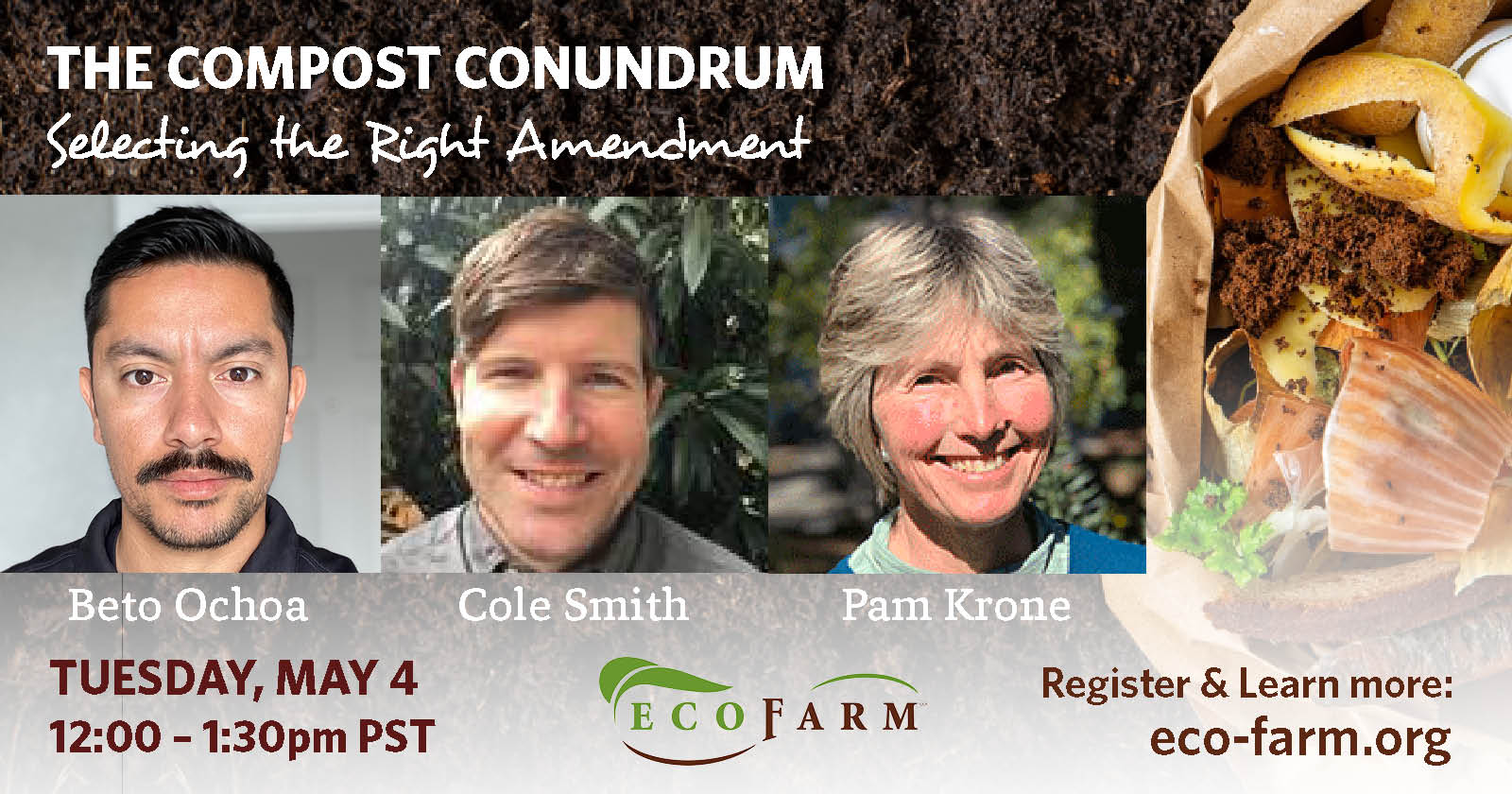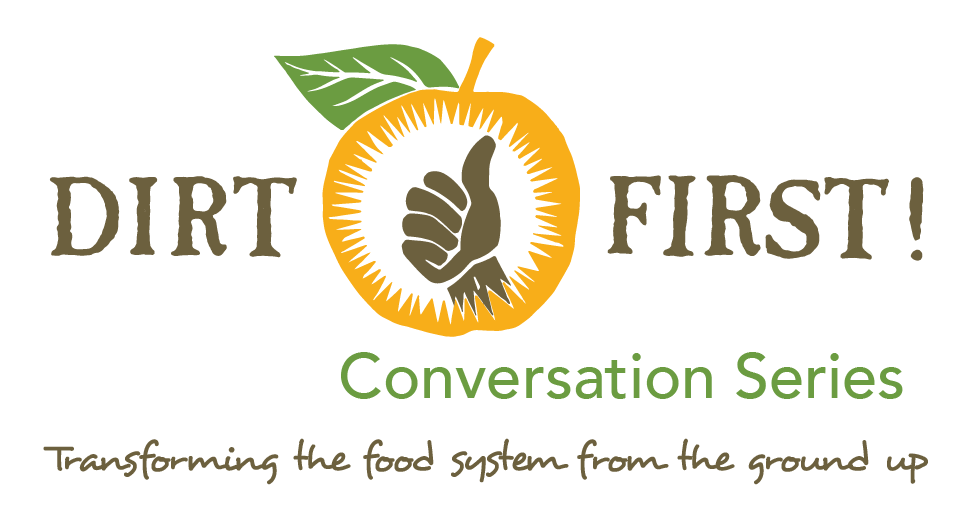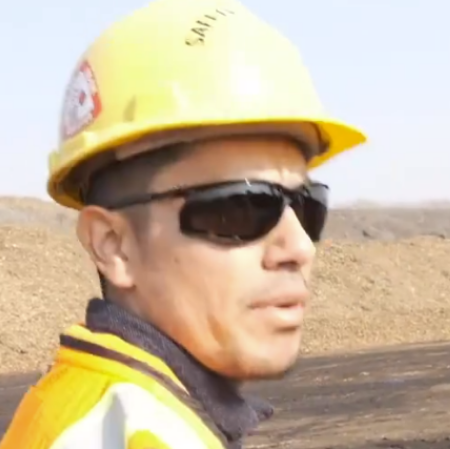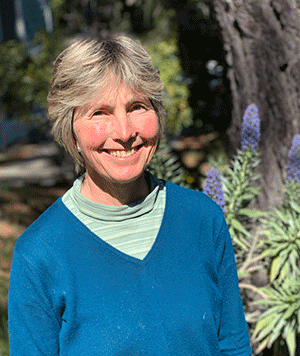

Many questions enter into the compost purchase decision, such as: What is the source material? What contaminants might be present? How does one read the test information on C:N ratio, salts, microbes and metals? How will regulations such as AB 1826 organic waste recycling affect compost supply quality and quantity? and How much compost should you apply and when? This webinar will answer these questions and address other topics, such as how to report compost applications to the Regional Water Board, what to ask when searching for a supplier, and lessons learned from those who have made poor choices. In addition to giving you the information you need to make an informed compost purchase decision, this session will cover basics such as why compost receives greenhouse gas credit in the Healthy Soils Program and future carbon credit programs, and generally how to build your soil health. A live Q&A follows the presentation.
1 ASA credit available



Tuesday, May 4, 2021
12:00 - 1:30pm
Presenters
Beto Ochoa, Z-best Composting

Beto Ochoa, Sales and Marketing Manager at Z-best Composting, works closely with both composters and farmers year round. Beto has been working for Z-best Composting for over nine years. During all these years, Beto has gained experience in many areas of a composting facility including operations, safety and environmental compliance, and more recently, sales and marketing. Z-best Composting, located in Gilroy, CA, is a fully permitted composting facility conforming to the State of California regulations set forth by the California Integrated Waste Management Board (CIWMB) Title 14, Division 7 California Code of Regulations governing composting operations. For over 20 years, Z-best Composting has been a leading supplier of high quality compost in the Salinas and Monterey area.
Cole Smith, UCANR

Cole is a Staff Research Associate with University of California Agriculture and Natural Resources and a PhD Student in the Soil Science and Biogeochemistry program at UC Davis working under Dr. William Horwath. Cole’s primary research focus is on the use and application of organic amendments within vegetable cropping agroecosystems of the California’s central coast. Cole holds a master’s degree from UC Davis in Soil Science & Biogeochemistry and has been with UC ANR for 6 years, focusing broadly on implementing extension-based outreach and education programs aimed at increasing organic waste diversion from landfills, improving soil health and promoting the adoption of sustainable agricultural practices.
Moderator
Pam Krone, California Marine Sanctuary Foundation | Monterey Bay National Marine Sanctuary | Agricultural Water Quality Alliance (AWQA)

Pam coordinates research, education and implementation efforts between the Sanctuary and partner organizations toward the goal of reducing pollution entering the Monterey Bay from agricultural runoff. Our efforts are directed toward helping growers conserve irrigation water used on crops and reduce the amount of agricultural pollutants (e.g. nutrients, pesticides and pathogens) that enter local streams and rivers that eventually empty into the ocean. She coordinates the Agricultural Water Quality Alliance (AWQA), a partnership effort between industry groups, resource conservation agencies, researchers and environmental organizations, with the aim of sustaining the beauty, viability, and productivity of our local farmlands while improving the water quality needed to restore and preserve the integrity of marine and stream ecosystems.

